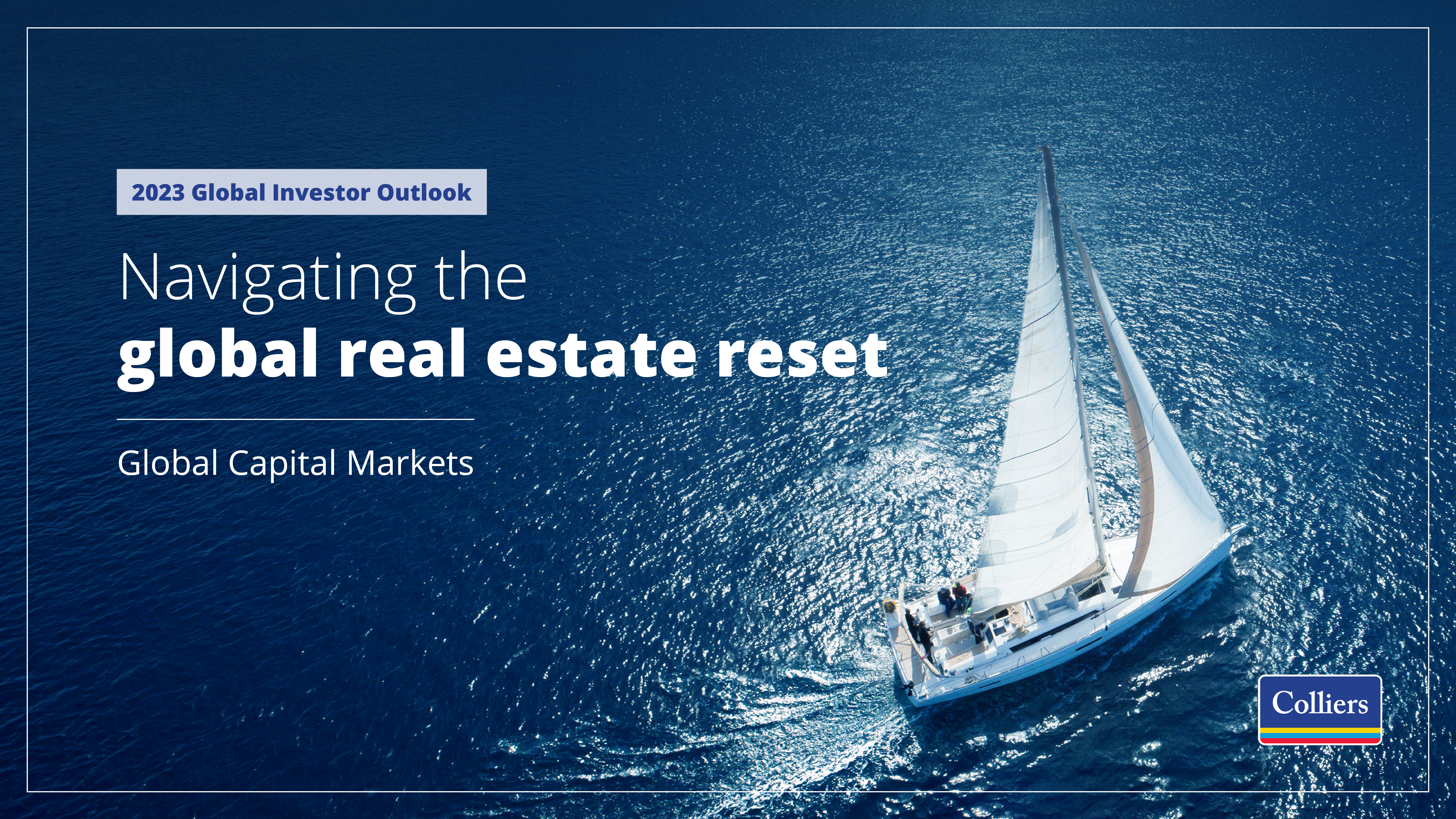After a volatile year of geopolitical tensions, economic shocks and uneven monetary policy, Colliers, a leading diversified professional services and investment management company with operations in 63 countries, anticipates the process of stabilization of the global real estate market to take hold by mid-2023 in its latest Global Investor Outlook. While some countries, lincluding the U.S., have already witnessed a rapid pricing reset, this has not been universal. Investors can expect big differences in how the reset plays out across sectors and markets next year.
“Real estate markets offer a solid, long-term investment and income stream once pricing levels are clearer. Local events and macroeconomic factors still have the potential to disrupt positive momentum. Investors should be prepared for regression before progression in markets that remain susceptible to further shocks,” said Tony Horrell, head of Global Capital Markets. “We anticipate investment activity to pick up as central banks end rate hikes and greater economic certainty emerges. In the meantime, investors will remain on the lookout for bargains, with significant funds being drawn up to act.”
Liquidity and sustainability driving opportunities
Capital values will continue to be negatively impacted by the transition to higher interest rates, causing some distress in 2023 especially for non-core assets. There is an acceleration in opportunistic fundraising, indicating a focus on finding pockets of opportunity amidst the current reset, which include:
- Closed-ended real estate funds reaching their termination dates.
- Investors that may be caught short when it comes to re-financing. Creative routes to market in the debt space as more investors explore solutions like mezzanine debt, bridge loans and project finance.
- Listed funds like REITS and developers that continue to trade at discounts to net asset value, creating opportunities to acquire bonds and convert to equity, place capital into existing structures or in some cases privatize.
More broadly, environmental, social, and governance (ESG) criteria continues to be a key factor in investor decision making. In 2022, only 10% of investors had a capital improvement, disposal, or acquisition strategy that incorporated ESG considerations. This has risen to 17% in 2023, with 45% of respondents looking to dispose of up to 20% of their existing portfolio in the next five years.
“In response to occupier preferences, growing regulatory requirements and the rising cost of operating assets, investors are rethinking value and placing a greater emphasis on a range of ESG factors this year. There is both an expectation and greater evidence that assets with strong sustainability characteristics can command a premium and those that don’t will be heavily discounted,” said Damian Harrington, head of research for Global Capital Markets and EMEA. “It will be interesting to see just how capital is distributed across the capital stack in terms of refinancing, the retrofitting of assets, new construction, or divestitures.”
Core assets prevail
Market volatility has led investors to focus on fundamentals and defensive strategies. Across the board, investors’ top three sector preferences for 2023 are offices (60%), industrial & logistics (60%), and multifamily/BTR (48%). While core assets in established, larger cities are investors’ preference (60%), sectors closely connected to changing demographic and economic realities such as multifamily and senior housing are driving activity in smaller, growth cities. There is growing interest in first-mile logistics as investors recognize opportunities for nearshoring or reshoring of manufacturing to mitigate supply chain disruption and increase inventory, with focus on container terminals having doubled over the last 12 months in EMEA and APAC.
Rising costs and challenges ahead
Investors surveyed cited interest rates (88%), inflation (74%), and supply chain disruption (68%) as their primary macro challenges for the year ahead. Furthermore, current inflation and interest rates are fueling an increase in operational and construction costs already exacerbated by supply chain issues and energy price increases. Globally, 85% of investors said rising construction costs would have the most negative influence on their ability to pursue their investment strategies, followed by higher asset operating costs (77%).
“Understanding and managing the multitude of rising cost pressures impacting real estate is critical. Cost of capital is only one part of the equation,” said Chris Pilgrim, director of Global Capital Markets. “An experienced partner with local expertise can help investors understand market nuances that impact costs and values.”









